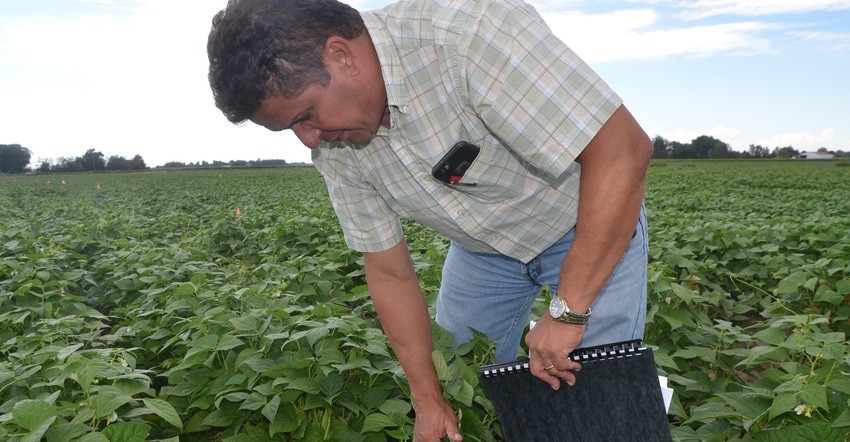January 22, 2019

By David Ostdiek
Results of the 2018 variety trials for dry edible beans conducted by the University of Nebraska Panhandle Research and Extension Center now are available on the University of Nebraska-Lincoln's CropWatch site at cropwatch.unl.edu/varietytest/othercrops.
Variety trial results for dry beans and other crops such as peas, oats, proso millet and sunflower are available in the Variety Trial section of CropWatch.
The 2018 dry bean variety trials were planted at two locations, the Scottsbluff Ag Lab at the Panhandle Research and Extension Center and the Mitchell Ag Lab, which is 5 miles north of the center.
At the Mitchell Ag Lab, three market classes were planted: Great Northern, kidney and pinto.
At the Scottsbluff Ag Lab, all market classes were planted, including pinto, Great Northern, kidney, black and miscellaneous.
The trials were conducted and results were compiled by Carlos Urrea, Nebraska Extension dry bean breeding specialist, and Eduardo Valentin, research technologist with the university's Dry Bean Breeding Program.
The dry bean report includes a description of the trials and 10 tables that list yield, moisture, test weight and other data for each variety within the market classes. The description includes detailed information, including planting dates, seeding rates, herbicide treatments, row width, irrigation, harvest date and other details.
The report will be published in the Bean Bag newsletter published by the Nebraska Dry Bean Growers Association and as a Nebraska Extension publication. The publication is expected to be ready in time for the annual Dry Bean Day in February.
Urrea expressed gratitude to Bob Hawley, longtime research technician who retired last year, for help planting the trials; Extension educator Gary Stone for help cleaning the bean samples; farm manager Gene Kizzire and his summer farm crew for help with agronomic management; and Ann Koehler for editing the document. He also expressed appreciation to the Nebraska Dry Bean Commission for financial support.
Ostdiek is a communications specialist at the Panhandle Research and Extension Center. This report comes from UNL CropWatch, which is solely responsible for the information provided and is wholly owned by the source. Informa Business Media and all its subsidiaries are not responsible for any of the content contained in this information asset.
You May Also Like




